Is React losing its charm? That’s the question many developers are asking. For almost a decade, React has been the go-to choice for building fast, dynamic, and scalable web applications.
But as technology evolves, so do developer expectations, and the future of web development looks very different from what it did a few years ago.
Today, businesses want lightning-fast websites, minimal code complexity, and better user experience, and developers are searching for frameworks that deliver all three.
This change has started a new debate across the tech world: Is React still the future of web development, or is it time to move on?
In this blog, we’ll explore what’s next after React and Next.js, the frameworks that are going to be the future of web development.
You’ll learn about the latest trends, rising alternatives, and how you can stay ahead in this ever-changing ecosystem.
Are React and Next.js Still Worth Learning or Fading Fast?
React’s story started in 2013 when Meta introduced it to simplify complex UI building.
Soon after, Next.js became the preferred framework to bring React apps to production with server-side rendering and smooth routing.
For years, the React & Next.js duo dominated the web development world & used to build millions of websites, from startups to global enterprises.
- But now developers are starting to feel what many call “React fatigue.”
- As projects grow, React’s ecosystem can feel heavy, with too many dependencies, frequent updates, and rising complexity.
- Similarly, Next.js, while powerful, is criticized for being too opinionated and requiring deep configuration.
- That’s why many developers look for React alternatives that are simpler, faster, and easier to maintain.
- Meta’s latest updates, like React Server Components, wanted to fix some of these issues by improving performance and reducing client-side JavaScript.
- But still many in the developer community believe these changes might be “too little, too late.”
We don’t see React and Next.js disappearing anytime soon; they’re still incredibly strong frameworks.
However, alternatives like Astro, SvelteKit, Remix, Qwik, and SolidJS are challenging the old standards with new features & performance-focused design.
Explore the Differences of React vs Next.Js.
How Is the Future of Web Development Changing Towards Simplicity and Speed?
The future of web development is being controlled by these three things: Speed, simplicity, and developer experience (DX).
As users expect instant load times and smooth experiences, developers are looking for tools that can deliver high performance without adding complexity.
In 2025, major web development trends are changing how apps are built:
- AI-based coding tools like GitHub Copilot and ChatGPT are helping developers write cleaner, faster code.
- Edge rendering is bringing applications closer to users, reducing latency and improving site speed.
- WebAssembly (Wasm) is enabling new levels of performance by letting developers use languages like Rust or C++ for web apps.
- And performance-first frameworks such as Qwik, Astro, and SvelteKit are proving that small, smart, and scalable is the future.
Developers want to create fast, flexible, and future-ready digital experiences.
This evolution is pushing the industry beyond React and Next.js toward frameworks that change how the modern web works.
What Frameworks Are Coming After React and Next.js?
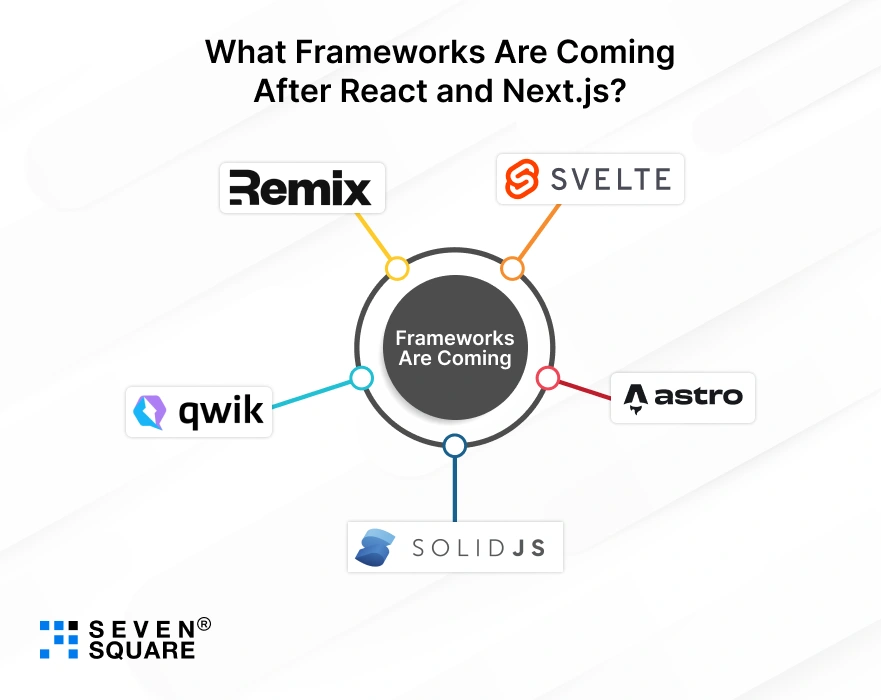
The question on every developer’s mind is clear: What’s after React and Next.js?
We’ve seen a strong shift in web projects as teams are looking for frameworks that offer faster performance, simpler code, and better scalability.
The web community is buzzing with fresh technologies that are changing how modern apps are built.
Here are the top React and Next.js alternatives in 2025 that are making developers rethink their tech stack.
1. Svelte & SvelteKit: The Lightweight Powerhouse
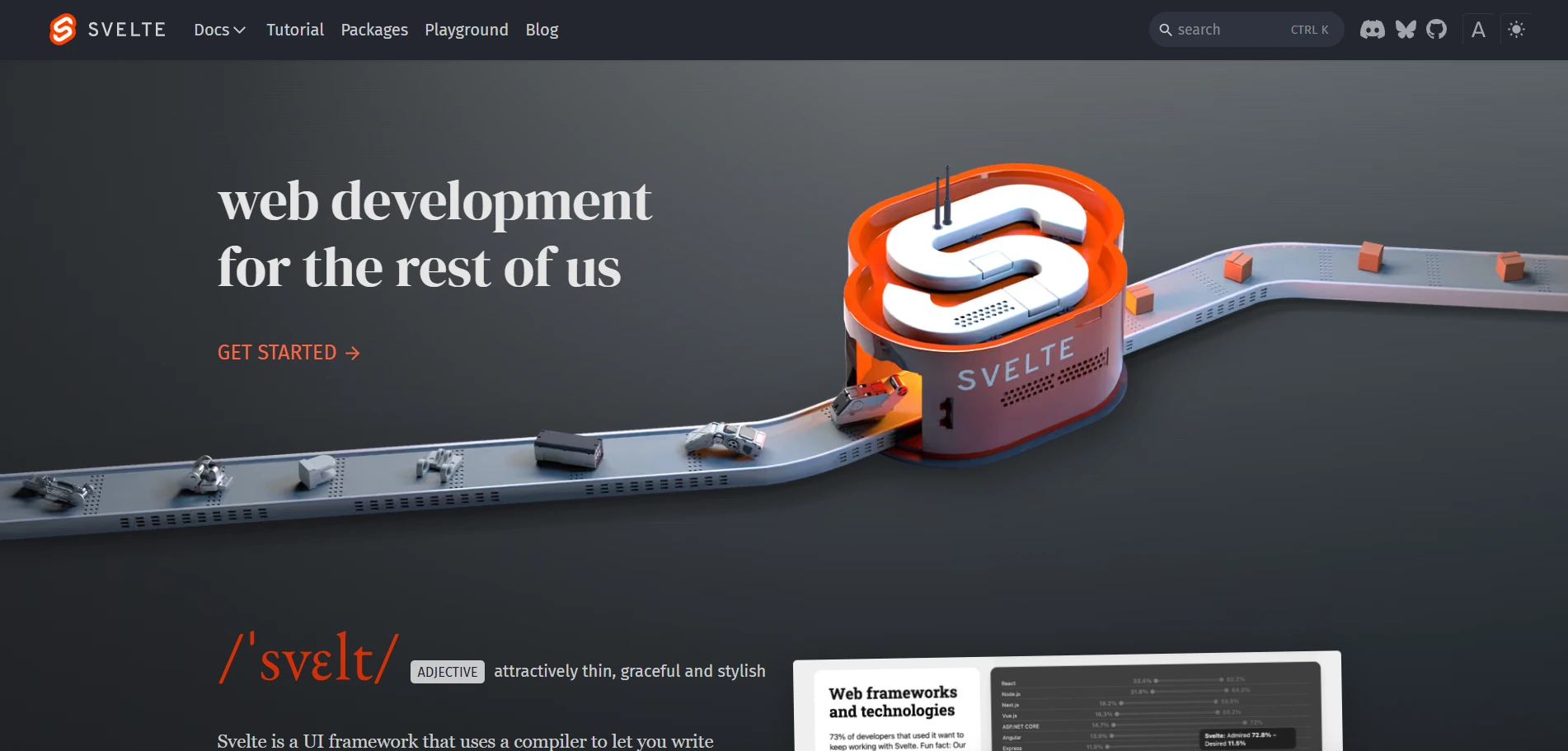
- Svelte and SvelteKit are known for their simplicity and speed.
- Unlike React, which updates the DOM at runtime, Svelte compiles your code at build time, removing the need for a virtual DOM.
- This compile-time approach is what makes Svelte apps incredibly fast and lightweight.
- In the Svelte vs React debate, Svelte wins hearts for its simplicity and developer experience (DX).
- It’s perfect for teams who want to create dynamic web apps without getting lost in endless boilerplate code.
- We use SvelteKit for clients who prioritize speed and performance in projects like landing pages, dashboards, and progressive web apps.
- It’s one of the strongest React alternatives for the next generation of web apps.
2. Astro: The Speed-Focused Framework for the Modern Web
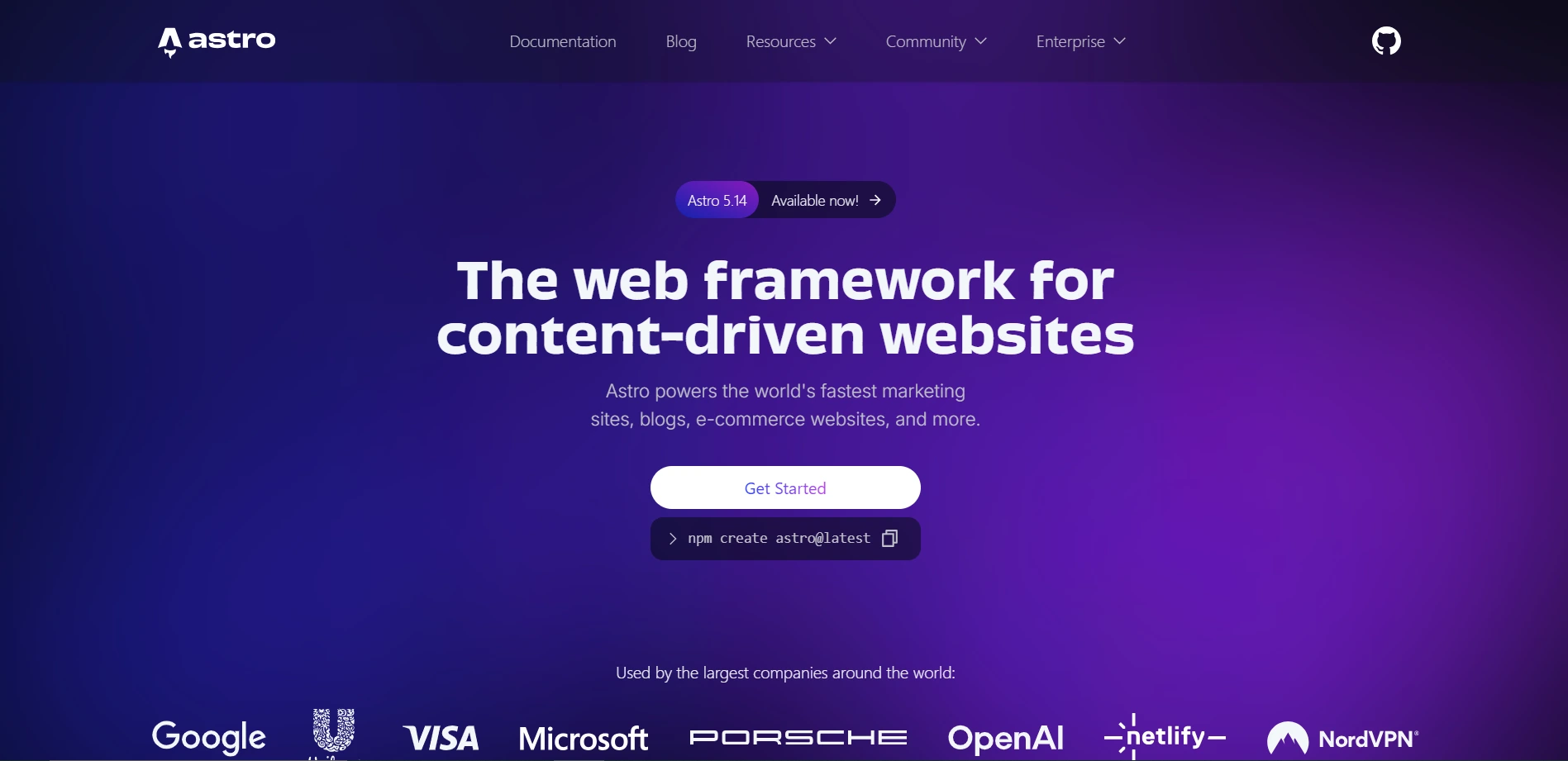
- Astro uses an “Islands Architecture”, which means it only loads the parts of the page that need interactivity, not the entire JavaScript bundle.
- In simple terms, your website loads faster, smoother, and lighter.
- That’s why in the Astro vs Next.js discussion, Astro is emerging as a clear winner for content-heavy sites, blogs, and marketing pages.
- Astro also lets you combine multiple frameworks, React, Svelte, Vue, or Solid, in one project, giving developers unmatched flexibility.
- We suggest Astro for clients who want speed and scalability.
- It’s one of the most exciting Next.js alternatives for building fast, modern websites.
3. SolidJS: The Hidden Gem of Performance
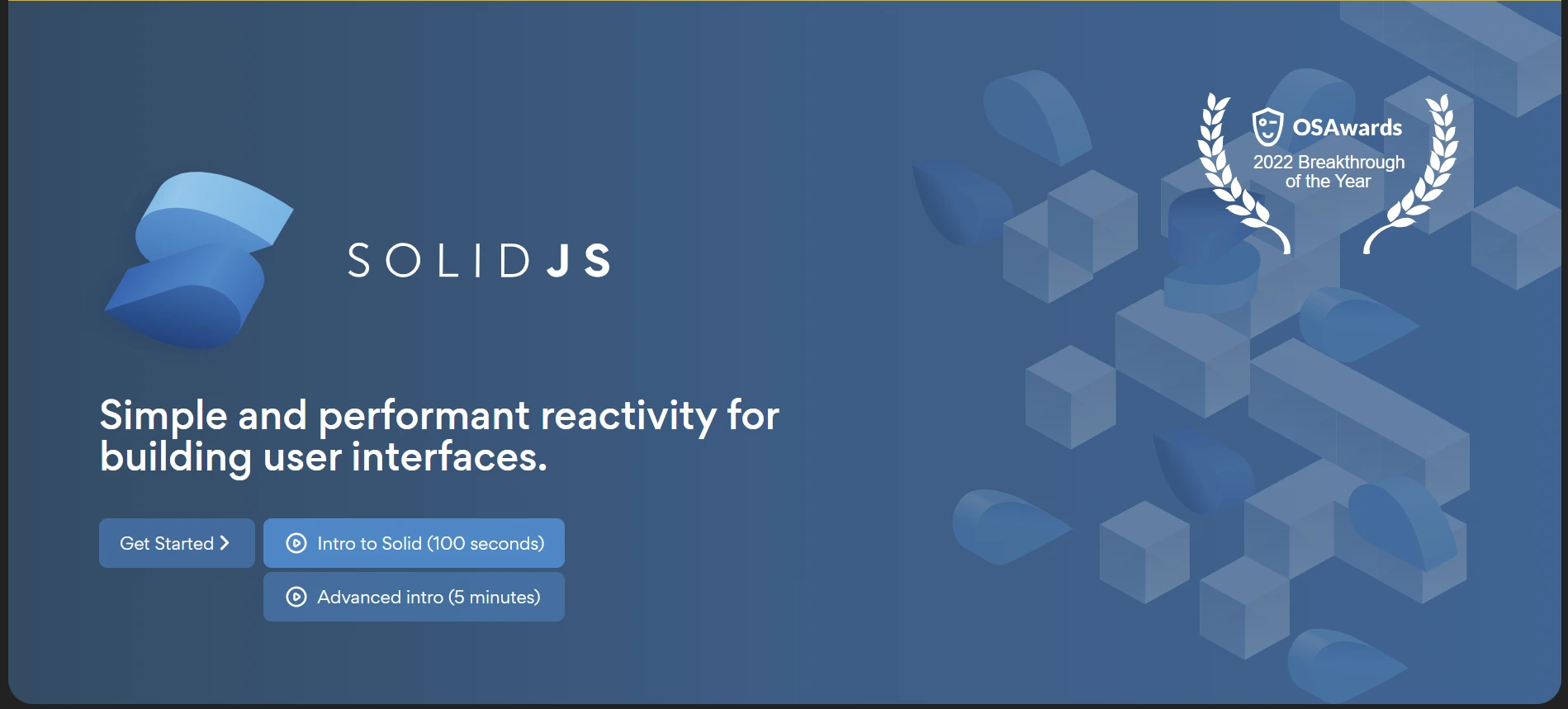
- SolidJS may not be as mainstream yet, but developers who try it rarely go back. It offers React-like syntax but with far superior speed.
- Thanks to its fine-grained reactivity system, SolidJS performance easily beats most JavaScript frameworks in benchmarks.
- The secret lies in its smart rendering model; it tracks changes precisely and updates only what’s necessary, leading to lightning-fast apps.
- We see SolidJS as one of the most promising React alternatives for teams building complex web applications that need top-tier performance.
- It’s minimal, fast, and powerful, a true hidden gem in the modern web stack.
4. Qwik: The Framework Built for the Advantage
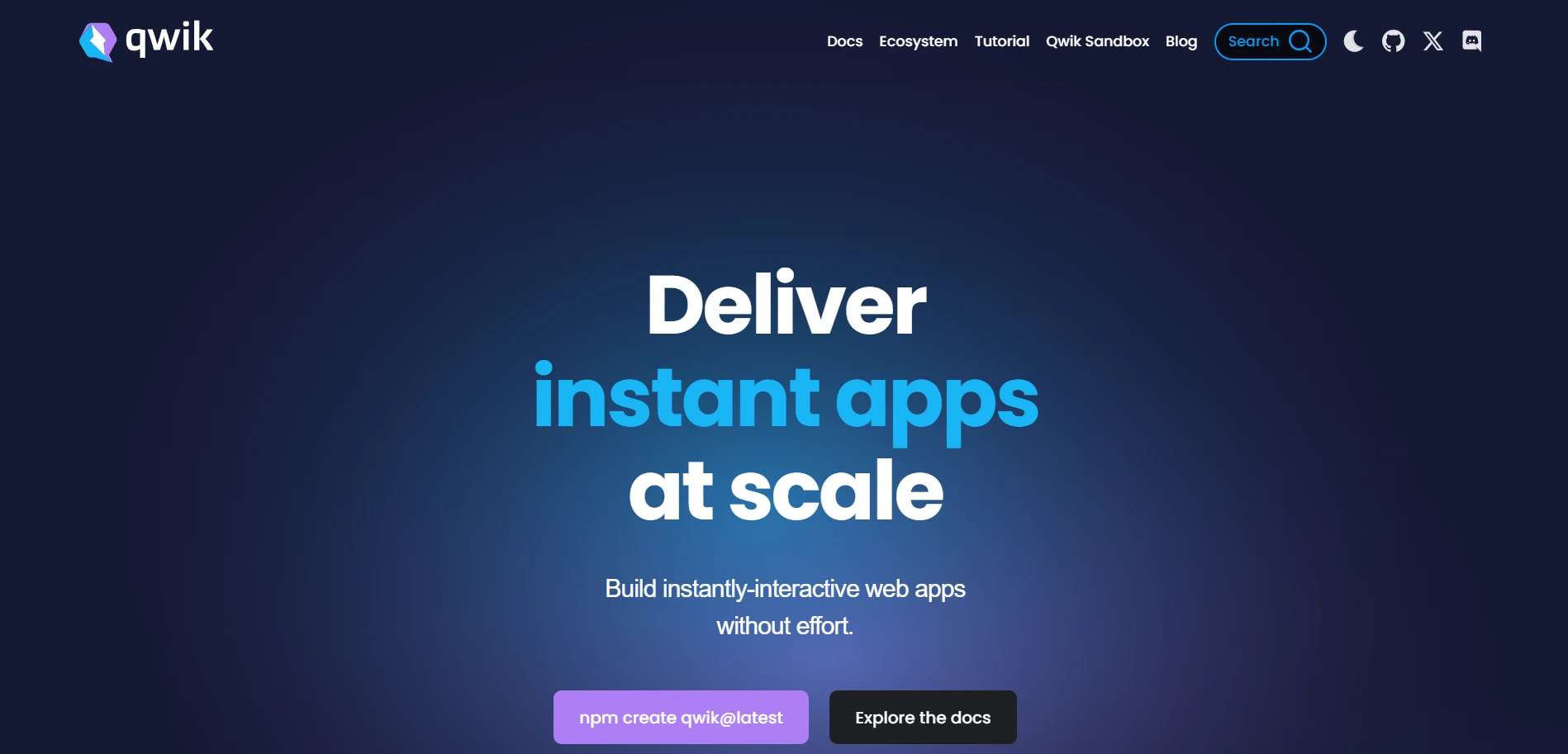
- Qwik framework is designed by the creator of Angular & it focuses on something revolutionary called “resumability.”
- Instead of reloading or re-rendering pages, Qwik can resume from where the user left off, delivering near-instant loading speeds even on slow networks.
- This makes it one of the best modern frontend frameworks of 2025, especially for businesses targeting global audiences.
- Qwik is also edge-optimized, meaning it performs beautifully across devices and regions.
- We believe Qwik represents the next big leap in frontend development; it’s what React would look like if it were invented today.
Learn more about the Comparison of Qwik vs React.
5. Remix: The Full-Stack Reinvention of Routing
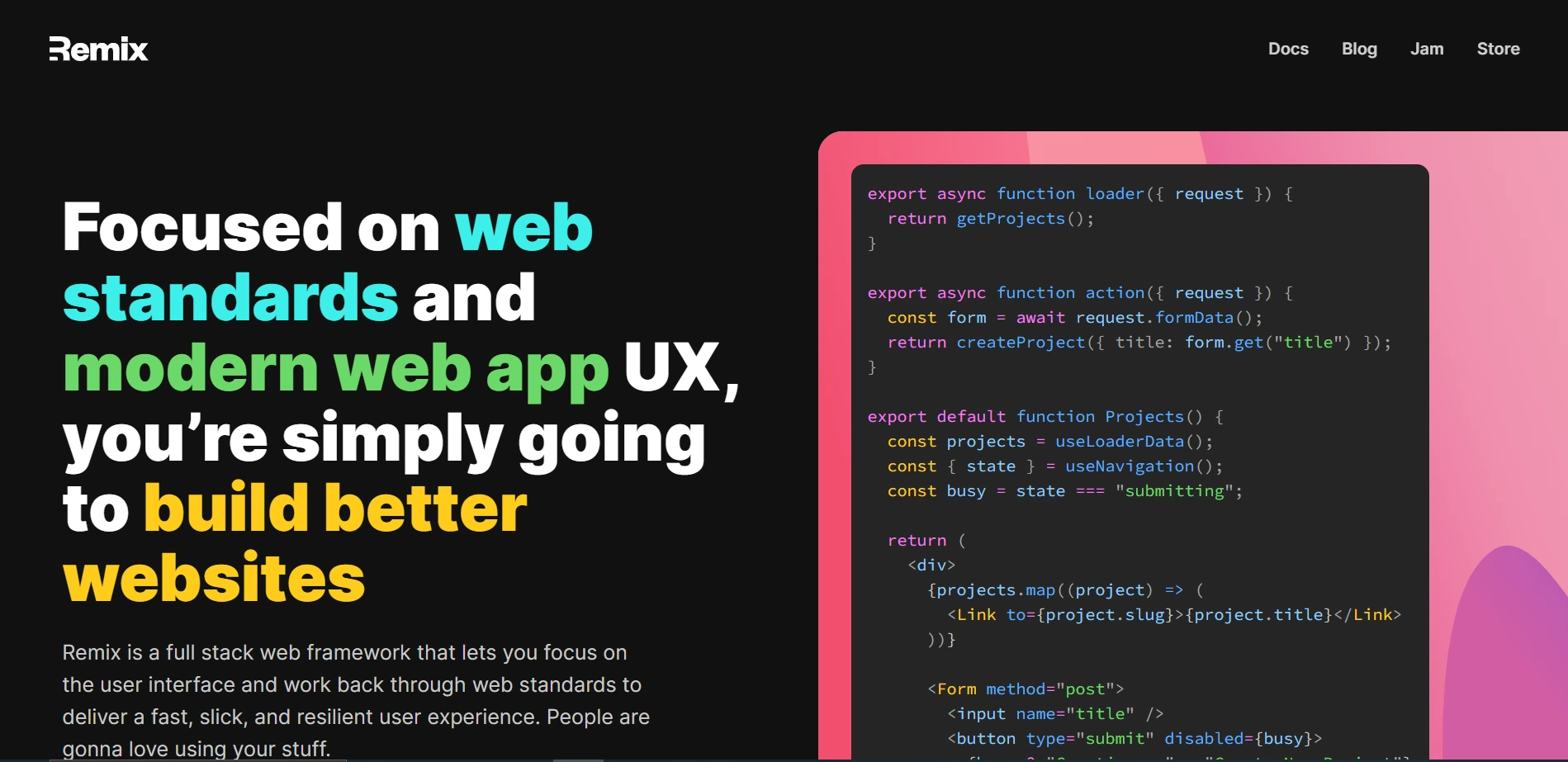
- Remix takes a bold step toward simplicity by going back to the basics, server-driven rendering, and progressive improvement.
- Unlike client-heavy frameworks, Remix focuses on fast data loading and smooth navigation.
- In the Remix vs Next.js debate, Remix is praised for giving developers more control over routing and server logic, while keeping apps lightweight and high-performing.
- Its full-stack nature allows you to handle both backend and frontend logic within one clean setup.
- It’s quickly becoming one of the top React alternatives for full-stack developers.
Can WebAssembly and AI Really Replace Traditional Frontend Frameworks?
While new frameworks like Astro, Svelte, and Qwik are transforming front-end development, the next big leap goes beyond frameworks.
The future of web development depends upon WebAssembly (Wasm), Artificial Intelligence (AI), and Edge computing, technologies that are reshaping how we build and deliver modern web apps.
1. WebAssembly (Wasm): The Secret to Speed
- WebAssembly allows developers to run high-performance code written in C, C++, or Rust directly in the browser, almost as fast as native apps.
- This means complex web applications like 3D rendering, video editing, and even games can run smoothly online.
- For developers, this provides a new world of possibilities: Faster apps, less JavaScript, and smoother user experiences.
2. AI in Web Development: The Smart Coding Era
- Artificial Intelligence is now part of everyday coding.
- Tools like GitHub Copilot, ChatGPT, and Vercel AI SDK are speeding up how developers build, debug, and optimize code.
- We use AI in web development to automate repetitive tasks, write cleaner code, and even personalize user experiences.
3. Edge Computing: Speed Meets Scalability
- Modern frameworks are now optimizing for the Edge, meaning apps run closer to users instead of distant data centers.
- This reduces latency and boosts performance, especially for global audiences.
- With serverless architecture and Edge-first frameworks like Qwik and Astro, developers can now deploy scalable web apps that load instantly anywhere in the world.
In short, WebAssembly, AI, and Edge computing are the new backbone of modern web development.
Should You Still Learn React or Move to Qwik, Astro, or Svelte?
Wondering whether to stick with React or learn something new.
Here’s our honest answer: React isn’t dead, but it’s evolving. It’s still a great choice for many projects, but it’s no longer the only choice.
Today’s web demands faster builds, better performance, and simpler workflows.
That’s where modern frameworks like Astro, Qwik, Remix, SvelteKit, and SolidJS come in.
If you’re asking, “Should I learn Qwik in 2025?” The answer depends on your goals.
To help you decide, here’s a simple guide:
| If you build | Learn this framework | Why |
| Content-heavy Websites (blogs, landing pages) | Astro | Super-fast & minimal JS |
| Performance-driven apps | Qwik | Instant loading with resumability |
| Interactive dashboards | SvelteKit | Reactive, lightweight, easy to learn |
| Full-stack web apps | Remix | Combines backend + frontend simplicity |
| High-performance projects | SolidJS | Unmatched rendering speed |
Why Choose Us for Modern Web App Development?
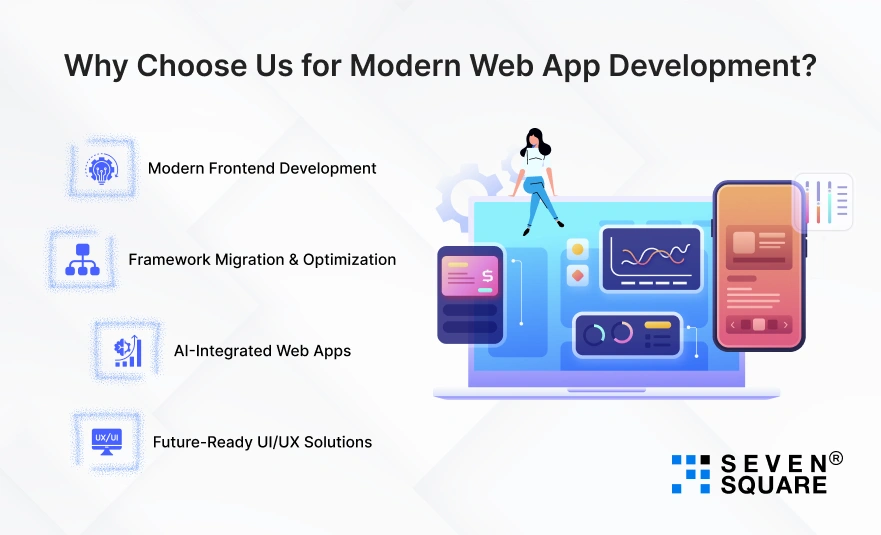
Our team specializes in modern web app development using the latest frameworks and technologies that ensure scalability, speed, and long-term performance.
We help businesses adopt React alternatives and build web apps that perform exceptionally across platforms.
Our key web development services include:
- Modern Frontend Development: Building future-ready interfaces using React, Astro, Svelte, and Qwik.
- Framework Migration & Optimization: Smooth transition from old tech stacks like Next.js to faster, modern alternatives.
- AI-Integrated Web Apps: Using AI tools to improve efficiency, personalization, and automation.
- Future-Ready UI/UX Solutions: Designing digital experiences that are both beautiful and fast.
Want a Modern Web Application? Contact Us Now!
The Future Is Faster, Smarter, and More Modular
The future of web development is all about speed, intelligence, and adaptability.
We’ve moved from React and Next.js to a new era of modern web frameworks like Qwik, Astro, and SvelteKit, each built for performance and simplicity.
We believe the web’s future won’t belong to a single framework but to developers who adapt quickly.
FAQs
- React is still relevant, but newer frameworks like Astro, SvelteKit, and Qwikare changing how web apps are built.
- There isn’t one single replacement.
- Frameworks like Astro, Remix, and Qwik are coming as powerful Next.js alternatives for faster and simpler builds.
- Both Qwik and Svelte are future-ready.
- If you love performance and simplicity, they’re among the best modern frontend frameworks to learn.
- Currently, Astro and Qwik are leading in performance benchmarks.
- They load faster and ship less JavaScript, which is perfect for user experience.